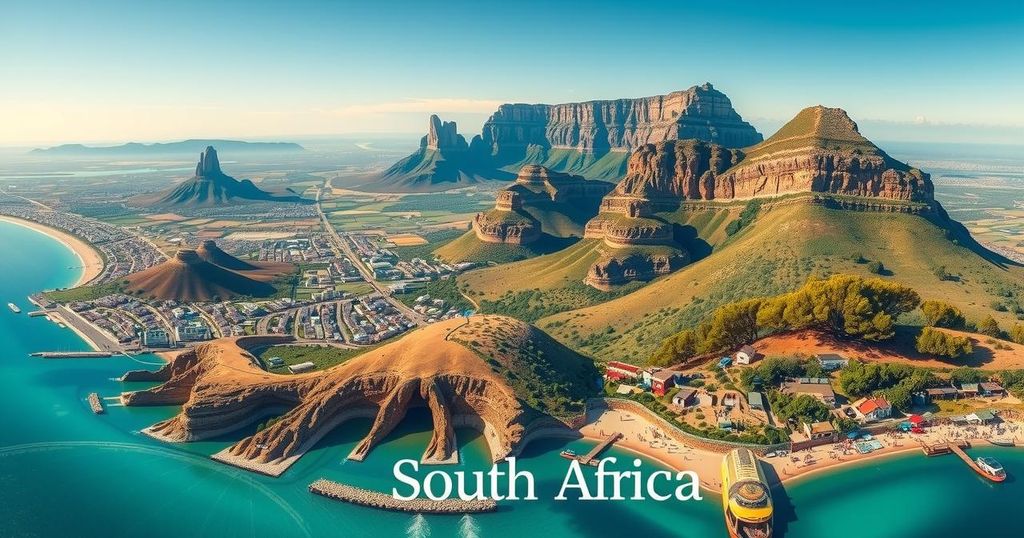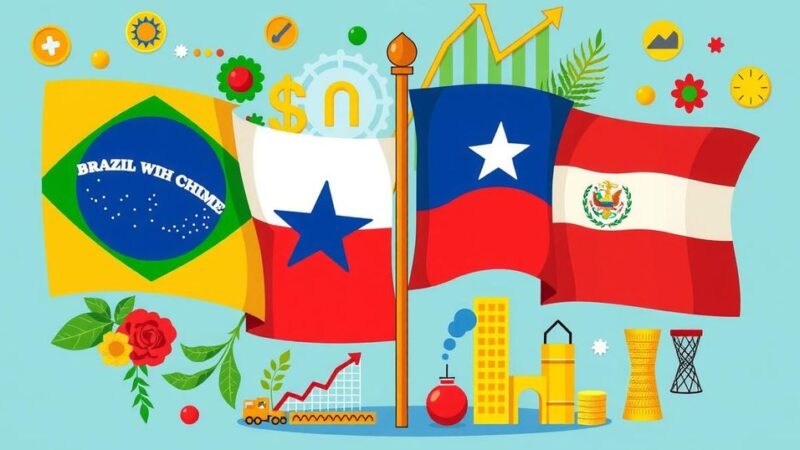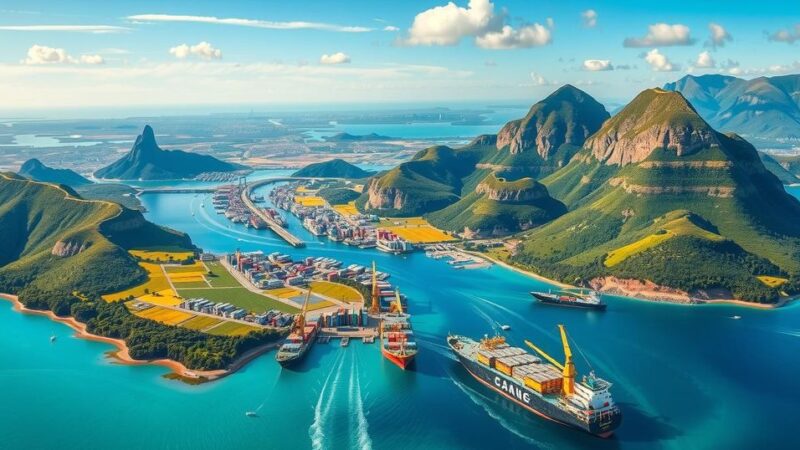April 27 marks South Africa’s Freedom Day, commemorating its post-apartheid democratic elections of 1994. As the Government of National Unity takes shape under President Cyril Ramaphosa, there is cautious optimism regarding political reforms. The economy remains a focal point, grappling with challenges while showcasing resilience and cultural richness, as seen in new trade agreements with Thailand and the nation’s diverse heritage.
On April 27th, South Africa commemorates its National Day, a significant date that attracts recognition worldwide for the nation’s incredible journey. Freedom Day, as it is called, pays tribute to the historic democratic elections of 1994 which effectively dismantled apartheid and established a new era of equality and unity. This moment marked a shift that has continued to shape South Africa’s identity over the years.
Currently, South Africa is at a crucial point in its political evolution. Since June 2024, the country’s Government of National Unity (GNU), under President Cyril Ramaphosa’s leadership, has intended to enhance governance and stability. Although political hurdles remain, the GNU has received a warm reception from financial markets, suggesting a cautiously optimistic outlook for economic reforms.
As the largest economy in Africa, South Africa has been projected by the International Monetary Fund to experience a GDP growth of 1.5% in 2025, which is a slight rise from the preceding year. Nevertheless, industries—especially financial services—face structural challenges such as infrastructure bottlenecks and persistent electricity supply constraints. Inflation reportedly averaged 4.4% in 2024, while unemployment figures persist near 31.9% as of the fourth quarter of the year.
Although grappling with a high debt-to-GDP ratio of 77.4% and glaring income disparities, South Africa sustains its pivotal role in the continent’s economic landscape. Nestled at Africa’s southern tip, the nation is distinguished by its magnificent scenery and rich cultural tapestry. With a population surpassing 60 million, it is also known as the most industrialized and technologically adept nation on the continent.
Additionally, an array of 12 UNESCO World Heritage Sites punctuate South Africa’s historical and cultural landscape, including the famed Robben Island and the Cradle of Humankind. Iconic landmarks like Table Mountain, which offers breathtaking views of Cape Town, Kruger National Park, one of the continent’s largest game reserves, and Blyde River Canyon, one of the world’s largest canyons, further add to the country’s attraction.
The cultural diversity of South Africa is remarkable, featuring 11 official languages and a combination of traditions from indigenous African groups, European settlers, and Indian communities. Sport plays an instrumental role in national unity, with football, rugby, and cricket particularly resonating across various cultural divides.
As early 2025 unfolds, South Africa has established stronger economic ties with Thailand through a major agreement allowing the latter to export 300,000 metric tonnes of rice to South Africa, valued at around $156 million. This agreement reflects an emerging trend in trade relations between the countries—Thailand exporting goods like automobiles and electronics to South Africa, which supplies minerals, wine, and fresh produce in return.
As the country reflects on its National Day, South Africa emerges at a crossroads characterized by potential and tribulation. Its spirit of resilience, burgeoning economy, and rich heritage inspire hope for a future poised for global partnership and expansion. Observers from around the world look on eagerly as South Africa continues its transformation and embraces its growth journey.
In summary, South Africa’s Freedom Day on April 27th reflects both its historical struggle and its current challenges, as the nation continues to pursue political and economic advancement. The establishment of a Government of National Unity signifies a hopeful shift toward governance, despite persisting issues such as high unemployment and debt levels. Meanwhile, vibrant cultural heritage and growing global partnerships remain essential components of South Africa’s journey. Overall, the nation is set on a promising path, navigating complexities with resilience and optimism, showcasing its ongoing transformation.
Original Source: www.nationthailand.com






